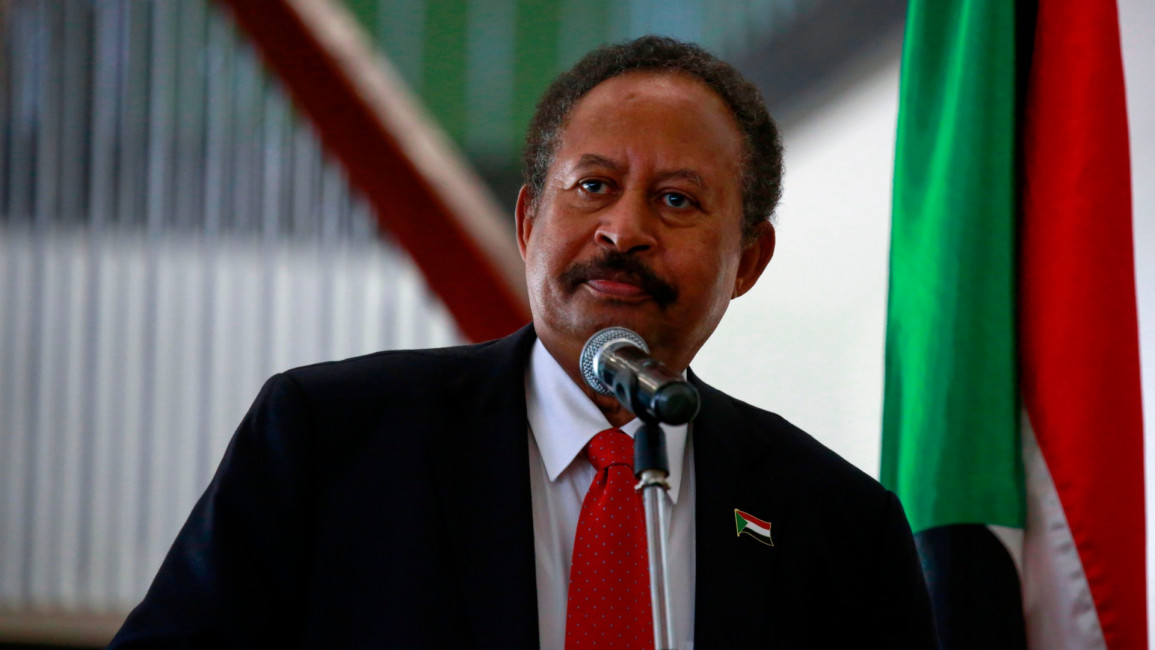Sudan to meet US, UAE delegates for Israel normalisation meeting in Abu Dhabi: reports
The meeting will bring together Sudanese officials with their American and Emirati counterparts, including White House National Security Council's senior director for Gulf Affairs, Middle Eastern Affairs Directorate, Brig. Gen. Miguel Correa - one of the alleged architects of the UAE-Israel normalisation agreement, Axios reported.
The UAE delegation will be represented by Tahnoun bin Zayed, the national security adviser tasked with Israel talks.
Prime Minister Abdalla Hamdok and Minister of Justice Nasredeen Abdulbari will attend to represent Sudan, the report added.
The African country, which has only recently reestablished ties with the United States, is expected to request more than $3 billion in humanitarian assistance and direct budgetary aid in return for normalising ties with Israel.
Sudan will also request a three-year commitment from the US and the UAE to provide economic aid, in a bid to bounce back from an economy crisis exacerbated by Covid-19 and devastating floods, the report revealed.
Twitter Post
|
The latest developments come as Sudan, which has launched sweeping social and political reforms, hopes Washington will soon take it off its blacklist of state sponsors of terrorism as it seeks to fully re-integrate into the international community.
Sudan has been under US sanctions for decades because of the presence of Islamists, including Osama bin Laden, who lived there for years in the 1990s before heading to Afghanistan.
Following the controversial announcement that solidified the UAE and Bahrain’s diplomatic relations with Israel, President Trump said similar US-brokered normalisation deals are close between the Jewish state and "five or six" more Arab countries, without mentioning names.
"We're very far down the road with about five countries, five additional countries," Trump said as he hosted Israeli Prime Minister Benjamin Netanyahu in the Oval Office, ahead of the signing ceremony with the UAE and Bahrain for the US-brokered deal.
"We'll have at least five or six countries coming along very quickly, we're already talking to them," Trump said.
Israeli Prime Minister Benjamin Netanyahu met the leader of Sudan's transitional sovereign council, General Abdel Fattah al-Burhan, in Uganda in February and later announced that the two leaders had agreed to cooperate towards normalising ties.
Sudan's cabinet later denied that Burhan had made such a promise, which remains highly controversial in much of the Arab world.
More recently, Sudan's foreign ministry spokesman Haider Badawi said he was in favour of such an accord, but foreign minister Omar Gamaledinne then said the issue had "never been discussed by the Sudanese government" and promptly fired the spokesman.
Meanwhile, Sudan's premier Hamdok told US Secretary of State Mike Pompeo that his government had no mandate to normalise ties with Israel and that any such move would come after the transitional period, a spokesman said in August.
For the Middle East, the deals dubbed the Abraham Accords mark a distinct shift in a decades-old status quo where Arab countries have tried to maintain unity against Israel over its treatment of the stateless Palestinians.
Read also: Despite US pressure, Sudan's cost-benefit analysis puts normalising ties with Israel on hold, for now
The US-backed initiatives by the UAE and Bahrain have been condemned by the Palestinians as a "betrayal" of their struggle to end the Israeli occupation and establish their own state.
Trump has nonetheless voiced confidence the Palestinians would eventually sign on to the US-brokered peace agreements - which he hopes will boost his reelection chances in November.
Follow us on Facebook, Twitter and Instagram to stay connected


![President Pezeshkian has denounced Israel's attacks on Lebanon [Getty]](/sites/default/files/styles/image_684x385/public/2173482924.jpeg?h=a5f2f23a&itok=q3evVtko)



 Follow the Middle East's top stories in English at The New Arab on Google News
Follow the Middle East's top stories in English at The New Arab on Google News


